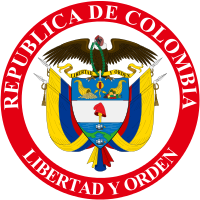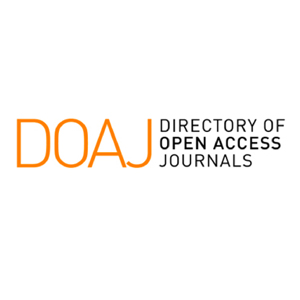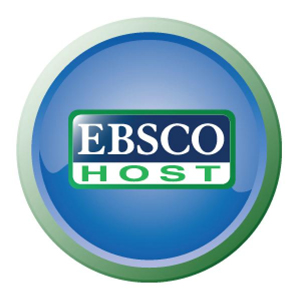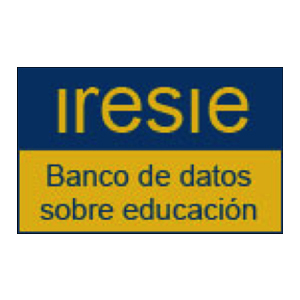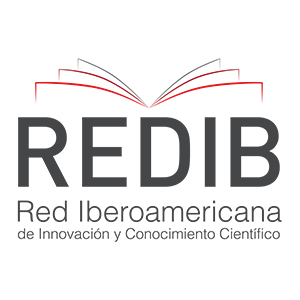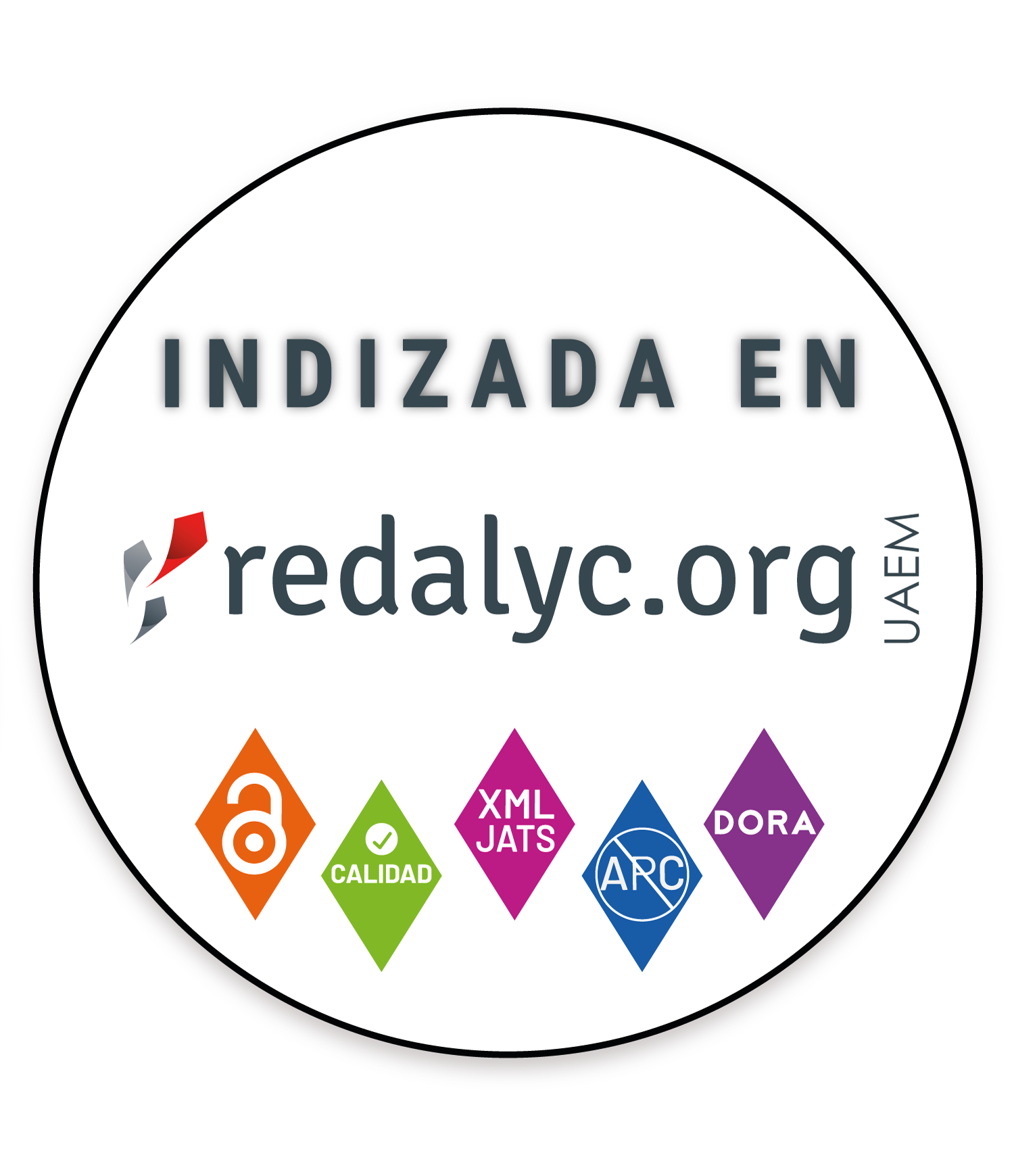El aprendizaje cooperativo: una revisión
Este artículo sintetiza las investigaciones empíricas de los últimos años sobre los efectos del trabajo en pequeños grupos o aprendizaje cooperativo, con y sin uso de la computadora, sobre los logros que alcanzan los estudiantes a nivel académico, social e intrapersonal. Se exponen el tipo de investigaciones realizadas con dicho método y las variaciones que pueden presentarse en su estructura. Estas variaciones tienen que ver con la forma como se conforman los grupos, los roles y el tipo de interacción, el diseño de la tarea, así como los contextos educativos en donde se ha realizado el trabajo en grupos en forma cooperativa. A partir de lo anterior, se proponen futuras direcciones de investigación y se concluye afirmando que el trabajo cooperativo, como forma de organización dentro del aula, puede beneficiar a niños, profesores así como a la misma institución escolar.
Aprendizaje cooperativo, roles, interacción, computadores. (es)
ALKHATEEB, H. y JUMAA, M. "Cooperative learning and álgebra performance af eighth grade students in United Arab Emirates". En: Psychological Reports, 90, 1, 2002, pp.91-100.
ARAUZ, M. R. "El desarrollo de la intersubjetividad y la colaboración". En: Educación y Cultura, 13,4,2001. 355 - 371.
BOXTEL, C.; LINDEN, J. y KANSELAAR, G. "The use of textbooks as a tool during collaborative physics learning" En: The Journal of Experimental Education, 69, 1, 2000, pp. 57-76
BOXTEL, C.; LINDEN, J.; ROELOFS, E. y ERKENS, G. "Collaborative concept mapping: provoking and supporting meaningful discourse". En: Theory and Practice, 41, 1, 2002, pp. 40-46
BRINTON, B.; FUKINI, M.; MONTAGUE, E. y HANTON, J. "Children with languaje impairement in cooperative works group: A pilot study". En: Languaje, Speech and Hearing Services in Schools, 31, 3, 2000, pp. 252-264.
Colomina, R. y Onrubia, J. "Interacción educativa y aprendizaje escolar: la interacción entre alumnos". En: Coll, Palacios y Marchessi (eds.). Desarrollo Psicológico y educación, v.2. Psicología de la educación escolar. Madrid, Alianza, 2001.
COLLINGS, P. y PEARCE,J. "Sharing designer and user perspectives of web site evaluation. A cross-campus collaborative learning experience". En : British Journal of Educational Technology, 33, 3, 2002, pp. 267 - 278.
COHEN, E. "Restructuring the classroom: Conditions for productive small groups" En: Review of Educational Research, 64, 1 1994, pp. 1-35
CHANG, K.Y.R. y SMITH, F. "Cooperative learning and CALL / IVD in beginning Spanish: And experiment". En: Modern Language Journal, 75, 2, 1991, pp. 205-211. Abstract extraído el 18 de agosto de 2003 de la base de datos de ERIC: 19902000.
CHANG, Ch. y MAO, S. "The effects on students cognitive achievement when using the cooperative learning method in earth Science classrooms". En: School Science and Mathematics, 99, 7, 1999, pp. 374-379.
CHEN, G. y T.JOSWOLD, D. "Cooperative goals and constructive controversy for promoting innovation in student groups in China". En: Journal of Education for Business, 78, 1, 2002, pp. 46-50.
CHIZHIK, A. "Collaborative Learning through High-Level Verbal Interaction: From Theory to Practice". En: The Clearing House, 72, 1, 1998, pp. 58-61.
CHINN, C.; O'DONNELL, A, y JINKS, T. "The Structure of Discourse in Collaborative Learning". En; The Journal of Experimental Education, 69 (1), 2000, pp. 77-97.
CROOKS, S.; KLEIN, J., SAVENYE, W. y LEADER, L. "Effects of Cooperative and Individual Learning During Learner-Controlled Computer-Based instruction". En: The Journal of Experimental Education, 66, 3, 1998, pp. 223-44
FISHCER, B. GRAESEL, C, y MANDL, H. "Fostering collaborative knowledge construction with visualization tools". En Learning and Instruction, 12, 2, 2002, pp. 213-232. Abstract extraído el 15 de agosto de 2003 de la base de datos de ERIC: 20002003.
GAN, S. "Motivating at-risk students through Computer based cooperative learning activities". En; Educational Horizons, 77, 3, 1999, pp. 151-156.
GHAITH, G. "The relationship between forms of instructions, achievement and perceptions of classrooms climate". En: Educational Research, 45, 1, 2003, pp. 83-93.
GILBERT, N, y DRISCOLL.M. "Collaborative knowledge building: a case study". En: Educational Technology Research and Development, 50 , 1, 2002, pp. 1042-1629.
GILLES, R. y ASHMAN, A. "Behavior and interactions of children in cooperative groups in lower and middle elementary grades", En: Journal of Educational Psychology, 90, 1998, pp. 746-757
GILLIES, R. M. y ASHMAN, A. F. "The effects of cooperative learning on students with learning difficulties in the lower elementary school". En: Journal of Special Education, 34, 1, 2000, pp. 19-27.
GILLIES, R. M. "The residual effects of Cooperative-learning experiences: a two year follow-up", En Journal of Educational Research, 96, 1, (2002, pp. 15-20.
GILLIES, R. M. "The Behawiors, Interactions, and Perceptions of Junior High School Students During Small-Group Learning". En: Journal of Educational Psychology, 95, 1, 2003, pp. 137-147.
GOODWIN, M. Cooperative learning and Social Skills: What skills to teach and how to teach then. En: Intervention in School and Clinic, 35, 1, 1999, pp. 29-33.
GRANGER, M. y LIPPERT, S. "Peer learning across the undergraduate information systems curriculum". En: The Journal of Computers in Mathematics and Science Teaching, 18, 3, 1999, pp. 267-285.
HOOPER, S. "Effects of peer interaction during computer-based mathematics instruction". En: Journal of Educational Research, 85, 3, 1992, pp. 180-189.
HOOPER, S, "The effects of persistence ands small group interaction during computer based instruction". En: Computers in Human Behavior, 19, 2, 1991, pp. 211-220. Abstract extraído el 18 de agosto de 2003 (de la base de datos de ERIC: 1990-2000.
JAMES, M.; JOHNSON, D. y JOHNSON, R. "Are all types of cooperation equal? Impact of academic controversy Versus concurrence-seeking on health education". En: Social Psychology of Education, 5,4, 2002, pp. 329-344, Abstract extraído el 18 de
agosto de 2003 de la base de datos de PsycINFO:2000-2003.
JOHNSON, D. y JOHNSON, R. (). "Mainstraming and Cooperative Learning Strategies". En; Exceptional Children, 52, 6, 1986, pp. 553-561.
JOHNSON, D. y JOHNSON, R. y SMITH K. "Cooperative learning returns to college: What evidence is there that it Works?". En: Change, 30 (4), 1998, pp. 26-35.
JOHNSON, D. y JOHNSON, R y. JOHNSON, E. El aprendizaje cooperativo en el aula, Buenos Aires, Paidós, 1999a.
JOHNSON, D.; JOHNSON, R. & JOHNSON, E. Los nuevos círculos del aprendizaje. La cooperación en el aula y la escuela. Argentina, Aique, 1999b.
JOHNSON, D. y JOHNSON, R. "Making cooperative learning Work". En: Theory into practice, 382, 1999, pp. 67-75.
JOHNSON, D. y JOHNSON, R, R.y JENSEN, M. "Impact of positive interdependence during electronic quizzes on discurse and achievement". En: The journal of educational research, 95, 3, 2002, pp. 161-166.
JORDAN, D, y LE MATAIS, J. "Social Skills through cooperative learning". En: Educational Research, 39, 1997, pp. 3-21.
JORDAN, D. "Social skilling through cooperative learning". En: Educational Research, 39, 1, 1997, pp. 3-21.
KEWLEY, L. "Peer Collaboration Versus Teacher-Directed instruction: HOW TWO Methodologies Engage Students in the Learning Process". En Journal of Research in Childhood Education, 131, 1998, pp. 27-32.
KLEIN, J. y SCHNACKENBERG, H. "Effects of informal cooperative learning and the affiliantion motive on achievement, attitude, andstudents interactions". En: Contemporary Educational Psychology 25, 2000, pp. 332-341.
LOU, Y.; ABRAMI, P.; SPENCE, J.; POU SEN, C.; CHAMBERS, B.y D'APOLONIA, S. "Within-class grouping: A meta-analysis". En: Review of educational Research, 66, 1996, pp. 423-458.
LOU, Y.; ABRAMI, P. y SPENCE, J. "Effects of within-class grouping on student achievement: an exploratory model", En: The Journal of Educational Research, 94 (2), 2000, pp. 101-112.
LOU, Y, ABRAMI, P. y SPENCE, J. "Small group and individual learning with technology: A meta-analysis". En: Review of educational Research, 71, 3, 2001, pp. 449-521.
MADRAZO, L. y VIDAL, J. "Collaborative concept mapping in a web-based learning environment: A pedagogic experience in architectural education". En: Journal of Educational Mustimedia and Hypermedia, 11 (4), 2002, pp. 354-362. Abstract extraído el 18 de agosto de 2003 de la base de datos de PsyclNFO:2000-2003.
MARINOPOULOS, D. y STRAVIDOU, H. "The influence of a Collaborative learning environment on primary students? Conceptions about acid rain", En; Journal Of Biological Education, 371, 2002, pp. 18-25.
MEBANE, D. y GALASSI, J. "Variables affecting collaborative research and learning in a professional development school partnership". En: The Journal of Educational Research, 96, 5, 2003, pp. 259-268.
MULLER, A, y FLEMING, T, "Cooperative Learning: Listening to How Children Work at School". En: The Journal of Educational Research, 94 (5), 2001, pp. 259-265.
MULRYAN, C.M. "Perceptions of intermediate students' cooperative small-group work in mathematics". En: The Journal Of Educational Research, 87, 1994, pp. 280-291.
McMANUS, S. y GETTINGER, M. "Teacher and Student Evaluations of Cooperative Learning and Observed interactive Behaviors". En: The Journal of Educational Research, 90, 1, 1996, pp. 13-22.
McMASTER, K. y FUCHS, D. "Effects of cooperativde learning on the academic achievement of students with learning disabilities: An update of Tateyama SnieZek's review". En Learning Disabilities Research and Practice, 17, 2, 2002, pp. 107-117. Abstract extraído el 18 de agosto de 2003 de la base de datos de PsycINFO:2000-2003.
PETERS J. y ARMSTRONG, J. "Collaborative Learning: People Laboring Together to Construct Knowledge". En; New Directions for Adult and Continuing Education, 79, 1998, pp. 75-85.
PIERCY. M.; WILTON, K. Y. TOWNSEND, M. "Promoting the social acceptance of young children with moderade-severe intellectual disabilities using Cooperative learning techniques". En American Journal on Mental Ratardation, 107, 5, 2002, pp.352-360.
Abstract extraído el 18 de agosto de 2003 de la base de datos de PsyclNFO: 20002003.
PIFARRÉ, M. Y SANUY, J, "La resolución de problemas entre iguales: incidencia de la mediación del ordenador en los procesos de interacción y el aprendizaje". En: Infancia y Aprendizaje, 25, 2, 2002, pp. 195208.
ONWUEGBUZIE, A. "Relationship between peer orientation and achievement in Cooperative learning-based research methodology courses". En: The Journal Educational Research, 94 (3), 2001, pp. 164-170.
ONWUEGBUZIE, A.; COLLINS, K. YELBEDOUR, S, "Aptitude by treatment interactions and Matthe W Effects in Graduate-level cooperative-learning groups". En: The Journal of Educational Research, 96, 4, 2003, pp, 217-230.
RANDALL W. "Cooperative Learning Abused and Overused?". En: Gifted Child Today Magazine, 22, 2, 1999, pp. 14-16.
ROGOFF, B. Aprendices del pensamiento, El desarrollo cognitivo en el contexto social, Barcelona, Paidós, 1990.
SLAVIN, R. "Synthesis of Research on Cooperative Learning". En. Educational Leadership, 48, 5, 1991, pp.71-82.
STEINER, S.; SROMWALL, L., BRZUZY, S. & GERDES, K. "Using cooperative learning strategies in social Work education". En: Journal of Social Work Education, 35, 2, 1999, pp. 253-264.
STRIGHT, D. A. y SUPPLEE, H. "Children's Self Regulatory Behaviors During Teacher Directed, Seat-Work, and Small- Group Instructional Contexts". En The Journal of Educational Research, 95 (4), 2002, pp. 235-244.
SULLIVAN, A. y HERRENKOHL L. "Designing collaborative learning context". En: Theory into Practice, 41, 1, 2002, pp. 26-32.
SONNER-YoRK, Ch. y STANFORD, P. "Learning to Cooperate ATeacher's Perspective". En: Teaching Exceptional Children, 34, 6, 2002, pp. 40-44.
QUINN, M. "Changing Antisocial Behavior Patterns in Young Boys: A Structured Cooperative Learning Approach". En: Education and Treatment of Children, 25, 4, 2002, pp. 380-395.
RUTHER FORD, R. "Promoting Social Communication Skills Through Cooperative Learning and Direct Instruction". En: Education and Treatment of Children, 21, 3, 1998, pp. 354-69,
URIBE, D., KLEIN, J. y SULLIVAN, H. "The effects of computer-mediated collaborative learning on solving III-defined problems". En; Educational Technology Research and Development, 51, 1, 2003, pp, 5-19,
VASS, E. "Friendship and collaborative Creative Writing in the primary". En: Journal of computer assisted learning, 18, 1, 2002, pp. 102-110, Abstract extraído el 18 de agosto de 2003 de la base de datos de PsycINFO:2000-2003, Abstract 2002.
WAUGHAN, W. "Effects of cooperative learning on achievement and attitude among student of color". En: The Journal of Educational Research, 95, 6, 2002, pp. 359-364.
WEBB, N.; FARIVAR, S, y MASTERGEORGE, A, "Productive helping in cooperative groups". En: Theory and Practice, 41, 1, 2002, pp. 13-20
YAMAGUCHI, R. "Children's learning groups. A study of emergent leadership, dominance, and group effectiveness". En: Small group research, 32, 6, 2001, pp. 671-697.
YAMAGUCHI, R. "The effects of achievement goal orientation on emergent leadership in children's collaborative learning groups Dissertation abstracts international sections a humanities and social sciences", 62 (10-A), 3297, 2001. Abstract extraído el 18 de agosto de 2003 de la base de datos de PsyclNFO:2000-2003.
YELLAND, N. "Creating microWords for exploring mathematical understanding in the early years of school", En; Journal of Educational Computing Research, 27, 12, 2002, pp. 77-92.
Abstract extraído el 18 de agosto de 2003 de la base de datos de PsycINFO:2000-2003.
ZIMBARDO, P.; BUTLER, L. y WOLFE, V. "Cooperative College examinations: More gain, less pain when students share information and grades". En: Journal of Experimental Education, 71, 2, 2003, pp. 101-125.
APA
ACM
ACS
ABNT
Chicago
Harvard
IEEE
MLA
Turabian
Vancouver
Descargar cita
Citaciones

Métricas PlumX
Visitas
Descargas
Licencia
Derechos de autor 2017 Pedagogía y Saberes

Esta obra está bajo una licencia internacional Creative Commons Atribución-NoComercial 4.0.
Todo el trabajo debe ser original e inédito. La presentación de un artículo para publicación implica que el autor ha dado su consentimiento para que el artículo se reproduzca en cualquier momento y en cualquier forma que la revista Pedagogía y Saberes considere apropiada. Los artículos son responsabilidad exclusiva de los autores y no necesariamente representan la opinión de la revista, ni de su editor. La recepción de un artículo no implicará ningún compromiso de la revista Pedagogía y Saberes para su publicación. Sin embargo, de ser aceptado los autores cederán sus derechos patrimoniales a la Universidad Pedagógica Nacional para los fines pertinentes de reproducción, edición, distribución, exhibición y comunicación en Colombia y fuera de este país por medios impresos, electrónicos, CD ROM, Internet o cualquier otro medio conocido o por conocer. Los asuntos legales que puedan surgir luego de la publicación de los materiales en la revista son responsabilidad total de los autores. Cualquier artículo de esta revista se puede usar y citar siempre que se haga referencia a él correctamente.

